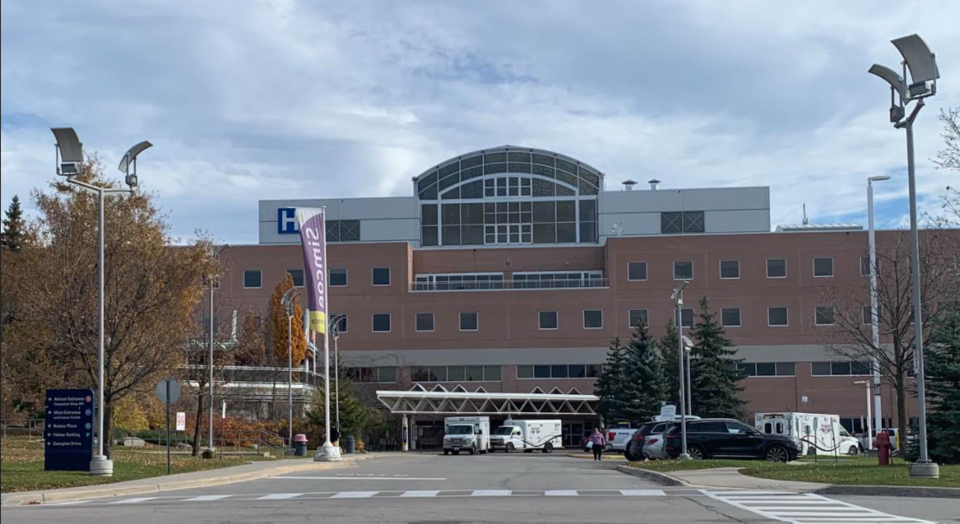Local officials are currently trying to figure out if it’s possible to get the newly approved COVID-19 vaccine to seniors living in long-term care homes first.
While news came earlier this week that Health Canada has approved a vaccine for use in this country, it comes with challenges.
The federal government announced the Pfizer-BioNTech COVID-19 vaccine could be administered to a target group as early as next week with a plan to vaccinate the general population from April to the end of 2021.
The provincial government announced Friday that phase one of its roll-out plan will see 90,000 doses designated for health care workers going to up to 14 hospital locations in the grey and red areas first.
That came just two hours after the province declared Simcoe-Muskoka would become a red zone starting Monday. It’s unclear if that means this area will be among those receiving the initial doses after the pilot period.
Locally, health officials are working their way through the technical difficulties in the supply chain.
The Pfizer-BioNTech product requires among the coldest temperatures of all the vaccines being developed. It must be stored at temperatures below -70 C and will be shipped in special thermal shipping boxes it developed that can keep the vaccine stable for days.
The challenge, said Medical Officer of Health Dr. Charles Gardner, is to figure out how to manage and distribute the vaccine once it arrives in Simcoe-Muskoka.
“We’ve got some real technical challenges in handling the vaccines that will come out at the very beginning. They require deep refrigeration and therefore special handling and we will have to become versed in how to do all of that,” Gardner said in a media briefing this week. “If I had my druthers we would be able to take it to the long-term care facilities and give it to the residents. But we need a better understanding as to how readily we could we do that with a vaccine that has these kinds of strict freezing requirements.”
Local medical officials have to consider whether or not the approach of vaccinating those in long-term care homes needs to be modified. Gardner suggested that it might be necessary to first give it to people who are more mobile who can go out to a central location to receive the vaccine.
The health unit is aware of one local deep-freeze facility to be employed for the job: Barrie’s Royal Victoria Regional Health Centre (RVH).
The challenge for local officials now is to figure out how to get it from there out to the masses with all restrictions it requires.
After it is thawed and mixed, the Pfizer vaccine can only be refrigerated for up to five days. Once it is diluted and ready for use, it must be used within six hours.
Over at RVH Dr. Chris Tebbutt, vice president, academic and medical affairs, has the pedal to the metal working with others at the hospital along with the health unit to figure out the distribution details.
The freezer, which he said is similar in size to one you might find in a home, can accommodate about 100,000 doses. Tebbutt said more equipment would be needed if an increased storage capacity is required.
“We have agreed to be a storage site for vaccines when it becomes available, given that we’ve got that capacity,” he said. “Things are changing very quickly.
“When and if we receive the vaccine, we have to start to plan to move ahead in terms of delivering the vaccine, which is a whole other level of planning.”
Exactly when the vaccine will arrive here and when it can start to be administered has yet to be determined as well as how that rollout will occur.
But Tebbutt said the situation is fluid and changing daily.
“For the sake of getting the vaccine to patients, we want that to happen as fast as it possibly can. But we’ve got a lot of planning to do in terms of pulling that off successfully and smoothly,” he said. “We’re going to try to adapt to whatever happens.”
The province will start its vaccine distribution pilot program on Tuesday, in Toronto and Ottawa with a goal of providing 2,500 health care workers the Pfizer-BioNTech vaccine. In its press release the province indicated the vaccine will not be transferred beyond the initial delivery locations - the University Health Network in Toronto and The Ottawa Hospital - in the pilot.
The lessons they learn through that process will then inform subsequent rollouts in terms of logistics of delivery, reconstitution of the vaccine, clinic management, post-vaccine surveillance and the experiences of those being immunized.
The rest of phase one with 90,000 doses will then follow.



